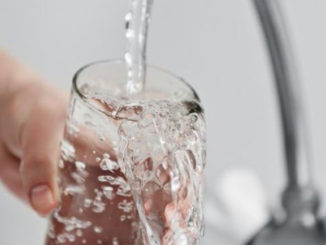
In the wake of storm Éowyn, should Ireland wake up too?
Writing from a laptop charged by one very sketchy car battery and drinking coffee heated on my living room stove, I feel oddly well-suited to write about the effects of natural disasters in Ireland.
This isn’t by choice. I don’t yearn for the good old days (though I doubt car batteries were ever traditional.) Instead, I can thank a storm for my current situation – a rather bad one.
The storm, named Éowyn, landed in the country early Friday morning. Meriting a red warning from the Irish meteorological service, it brought record-breaking winds exceeding 150km/h to the island – the worst recorded in decades.
By the time the winds subsided, the extent of the disruption was shocking. ESB, the state-owned power supplier, said in a statement on X that as of Friday morning, over 715,000 homes, farms and businesses were without power due to the storm’s effects, which equates to a third of all households in the country.
Uisce Éireann, the state-owned water supplier, likewise announced that as of Saturday evening, close to 200,000 customers remained without water.
Due to the severity and extent of the damage army troops, civil defence volunteers and fire brigade members have been deployed to aid in the clean-up.
Despite such support, the National Emergency Coordination Group (NECG), which met on Saturday morning to discuss the clean-up operation, stated that “full restoration will take more than a week in the worst-impacted areas.”
As one of the many who had no power, my newfound free time has left me wondering if it’s time we stop pretending Ireland is safe from the effects of these disasters.
Ireland doesn’t lie on any fault lines, nor is it threatened by hurricanes or monsoons. On paper, it’s easy to look at far worse international disasters like these and claim that such events don’t affect our small island. Yet every year, we seem to face harsher weather conditions.
Éowyn has been labelled a “generational storm”, yet little about it feels generational.
Just two months ago, we faced Storm Darragh, which caused similar mass power and water outages across the country and even damaged Holyhead Port in the lead-up to Christmas.
Only eight years ago we faced Storm Ophelia, which was considered the worst to hit Ireland in half a century.
Well, it hasn’t been half a century, has it?
That is without mentioning seasonal flooding which has increasingly devastated at-risk areas and communities nationwide.
We can’t ignore the fact that Ireland’s weather is changing. Comparing these changes to extreme events elsewhere, like the recent LA fires, might make our problems seem minor and manageable.
However, that doesn’t mean we should downplay their consequences.
In Ireland, we take a lot for granted regarding our weather.
Yes, there’s no sun half the year and as the saying goes, “It would be a great little country if we could put a roof on it.” Compared to most countries, though, we have a pretty good thing going.
As times change, however, we can’t keep a hands-off approach to these disasters, treating them as individual unrelated events. By doing this, we ignore the growing strain on the workers and systems that keep the country running.
Instead, we need to face the issue head-on and invest in the services and organisations that keep our lights on and our water running, because at the rate things are going, we’ll need a lot more than car batteries to get by.



